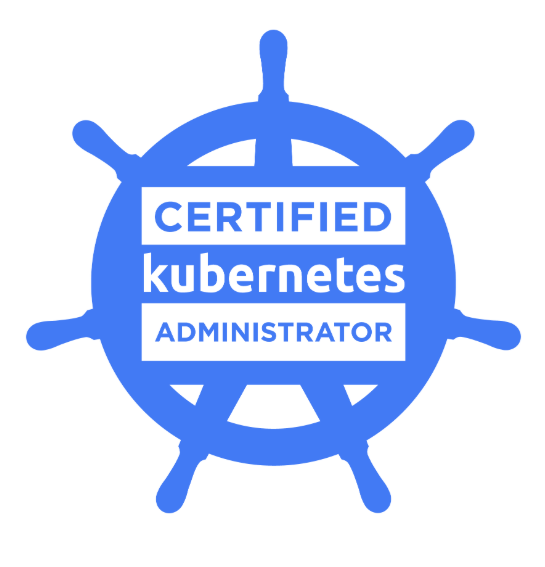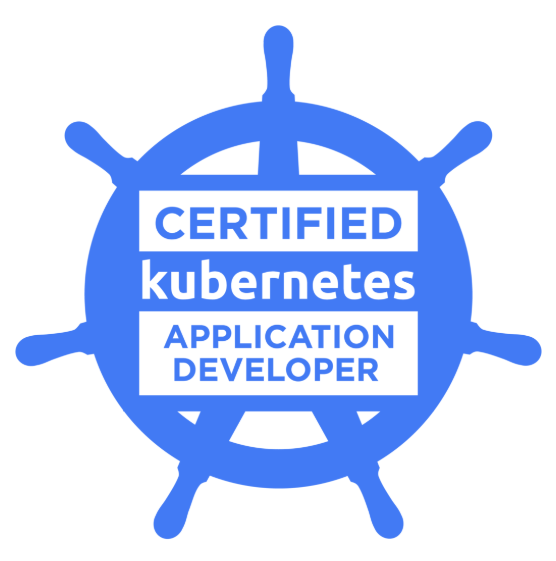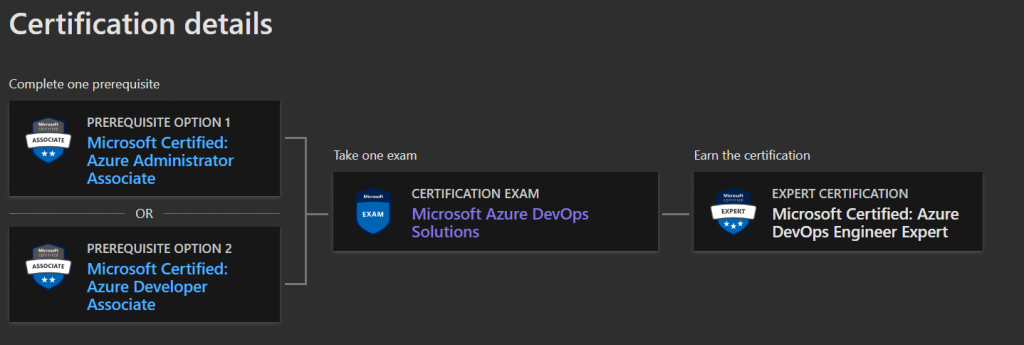DevOps is a rapidly growing field that bridges the gap between software development and IT operations. DevOps practices help organizations to deliver high-quality software quickly and reliably by automating the software delivery pipeline and creating a culture of collaboration and continuous improvement. To begin a career in DevOps, it’s essential to have the right skills and knowledge. One way to demonstrate your expertise in DevOps is by obtaining certifications. In this blog, we’ll discuss the top 7 certifications that can help you kickstart your career in DevOps. These certifications cover various aspects of DevOps, including continuous integration and delivery, containerization, cloud computing, automation, and more. By obtaining these certifications, you can enhance your skills, increase your job opportunities, and advance your career in DevOps.
Due to this, there is a sudden shift in the demand for DevOps certifications. Therefore, in this article, we’re going to discuss the top 7 DevOps. But, first, let’s begin with the importance of DevOps certifications.
Top DevOps Certifications
Changes are an unavoidable aspect of life. Changes are also a big aspect of the IT sector. As a result, everyone must adjust and be on the same page. Employers are searching for employees who can adapt and offer DevOps value as a result of these massive shifts. DevOps also necessitates knowledge in Linux system management, DevOps tools, and cloud computing. The certification provider is well-versed in all of these abilities, which has resulted in a demand for DevOps certification. As a result, we’ve compiled a list of the top DevOps certifications that can help you further your career in the field.
- AWS DevOps Engineer – Professional
- Microsoft Azure DevOps Solutions Certification Exam
- Kubernetes Certification
- Docker Certified Associate
- Puppet Professional Certification
- CompTIA Linux+
- Red Hat Certified Specialist in Ansible Automation
According to our experts, these are the top DevOps certifications to begin your career. But, we’ll not leave you with half information. So, now it’s time to view each one of these certifications in a broader light.
1. AWS Certified DevOps Engineer-Professional
DevOps Certification market is fairly young, as a result, AWS Certified DevOps Engineer Professional exam has made a great name for itself. When it comes to certifications, undisputedly, AWS is one of the market’s leader. AWS DevOps Engineer Professional certification exam tests a candidate’s technical skills and expertise to perform and maintain distributed systems on the AWS platform. Also, the candidate must have obtained some significant experience in administering operating systems and building automated infrastructures. However, the exam is available in English, Japanese, Korean and Chinese.
Exam Details
Registration Fee: USD 300
Exam Duration: 170 minutes
Question Type: 40-65 MCQs
Course Outline
- SDLC Automation (22%)
- Configuring Management and Infrastructure as Code (19%)
- Monitoring and Logging (15%)
- Policies and Standards Automation (10%)
- Incident and Event Response (18%)
- High Availability, Fault Tolerance, and Disaster Recovery (16%)
Glossary
Here are some terms related to the AWS Certified DevOps Engineer-Professional certification:
- AWS: Amazon Web Services is a cloud computing platform that provides a range of services, including computing, storage, and databases.
- DevOps: A culture and practice that combines software development and IT operations to deliver high-quality software quickly and reliably.
- Continuous Integration (CI): A practice that involves integrating code changes into a shared repository multiple times a day to detect errors early in the development process.
- Continuous Delivery (CD): A practice that involves automating the entire software delivery process, from building and testing to deployment and release.
- Infrastructure as Code (IaC): A practice that involves defining infrastructure in a code format, allowing it to be version-controlled, tested, and automated.
- Amazon Simple Storage Service (S3): A web service that provides scalable object storage for data backup and archival, big data analytics, and more.
- AWS Elastic Beanstalk: A fully managed service that makes it easy to deploy and run web applications using popular programming languages and frameworks.
- AWS CloudFormation: A service that allows you to create and manage AWS resources using templates and enables you to provision resources in a repeatable and automated way.
2. Microsoft Azure DevOps Solution Certification Exam
Microsoft Azure is one of the top cloud platforms just like AWS and the Google Cloud Platform. It provides a wide variety of services, including web servers, file storage servers, virtual machines, email servers, databases, user directories, and many more. Combining Azure and DevOps clarifies and speeds up the entire DevOps process, rendering faster and more reliable deployments. Therefore, the certification lies in the list of best DevOps Certifications. And, is also a top-ranked among professionals.
So, Azure DevOps Engineer Expert certification tests the candidate’s skills and expertise of Azure DevOps professionals specifically. They’ll proficient in the following tasks-
- Designing and implementing DevOps best practices for version control,
- The building, releasing, complying, testing, and infrastructure as code with the help of Azure technologies.
Exam Details
Prerequisite: Azure Administrator Associate and Azure Developer Associate
Registration Fee: $165
Exam Duration: 170 minutes
Question Type: 40-60 MCQs
Course Outline
- Firstly, designing a DevOps strategy
- Secondly, implementing DevOps development processes
- Subsequently, continuous integration
- Also, continuous delivery
- Not to mention, application infrastructure
- Further, dependency management
- Lastly, continuous feedback
Glossary
Here is a glossary of terms related to Microsoft Azure DevOps Solution Certification Exam:
- Azure DevOps: A cloud-based collaboration platform that helps software development teams to plan, track, and deliver software efficiently.
- Agile: A methodology used in software development that emphasizes iterative and incremental development.
- Scrum: A popular framework used in agile development that provides a structured approach to software development.
- Kanban: A method used to manage and visualize work in progress to improve efficiency and workflow.
- Continuous Integration (CI): A process of integrating code changes into a single repository frequently and automatically to catch issues early.
- Test Driven Development (TDD): A development approach where tests are written before the code to ensure that the code meets the requirements.
- Behavior Driven Development (BDD): An extension of TDD that focuses on the behavior of the system and its stakeholders.
- DevOps: A culture, mindset, and set of practices that brings together development and operations teams to deliver software efficiently and reliably.
- Deployment pipeline: A series of automated stages that a software change goes through, from code check-in to production deployment.
- Azure Test Plans: A testing tool in Azure DevOps that enables teams to plan, track, and execute tests.
- Learn Azure Artifacts: A package management tool in Azure DevOps that enables teams to store and share software artifacts.
- Azure Pipelines: A continuous integration and delivery tool in Azure DevOps that enables teams to build, test, and deploy software.
- Learn Azure DevOps Server: An on-premises version of Azure DevOps for organizations that cannot use the cloud-based version.
3. Kubernetes Certification
Kubernetes is an open-source container management system. Not to mention, it is a fusion of the Cloud Native Computing Foundation (CNCF) and the Linux foundation that automatizes the method of deploying and managing multi-container applications. Moreover, Kubernetes is one of the top DevOps tools that facilitate the DevOps team to keep pace with the necessities for software development, executing it a power player in the realm of DevOps certifications.
In the same vein, there are two certification options here. These include-
- Firstly, Certified Kubernetes Administrator (CKA)
- Secondly, Certified Kubernetes Application Developer (CKAD)
– CKA Certified Kubernetes Administrator (CKA)
The CKA certification evaluates the skills, knowledge, and proficiency that a Kubernetes Administrator must possess. The online exam comprises of a performance-based set of questions that the candidate needs to solve in a command line. Here the candidate, illustrate their competence in a hands-on, command-line environment.
So, the Certified Kubernetes Administrator (CKA) curriculum claims to ensure that CKAs have the awareness, abilities, and competency to execute the responsibilities of Kubernetes administrators.

Exam Details
Registration Fee: $300
Exam Duration: 3 hours
Question Type: Problem Solving
Course Outline
- Firstly, Application Lifecycle Management (8%)
- Secondly, Installation, Configuration & Validation (12%)
- Also, Core Concepts (19%)
- Moreover, Networking (11%)
- Furthermore, Scheduling (5%)
- Subsequently, Security (12%)
- Not to mention, Cluster Maintenance (11%)
- Further, Logging / Monitoring (5%)
- In addition, Storage (7%)
- Lastly, Troubleshooting (10%)
Glossary
Here is a glossary of terms related to Kubernetes Certification:
- Kubernetes: An open-source container orchestration platform that automates the deployment, scaling, and management of containerized applications.
- Container: A lightweight, standalone executable package of software that includes everything needed to run the application, including code, libraries, and system tools.
- Pod: The smallest deployable unit in Kubernetes that contains one or more containers.
- Node: A worker machine in Kubernetes that runs one or more pods.
- Cluster: A set of nodes that run containerized applications and work together as a single unit.
- Namespace: A logical grouping of Kubernetes objects that enables multiple teams or projects to share a Kubernetes cluster without interfering with each other.
- Service: An abstraction in Kubernetes that enables access to a set of pods.
- Job: A Kubernetes object that creates one or more pods to perform a specific task and terminates them when the task is complete.
- Volume: A Kubernetes object that provides a way for containers to store and access data.
- Persistent Volume: A Kubernetes object that provides a way to manage and use persistent storage in a cluster.
- Persistent Volume Claim: A Kubernetes object that requests a specific amount of storage from a persistent volume.
- ConfigMap: A Kubernetes object that stores configuration data as key-value pairs and makes it available to containers.
- Secret: A Kubernetes object that stores sensitive data such as passwords and tokens.
- API Server: The central control plane component in Kubernetes that exposes the Kubernetes API.
- Controller Manager: The component in Kubernetes that runs the controllers that manage the state of Kubernetes objects.
- Helm: A package manager for Kubernetes that enables users to install, upgrade, and manage applications.
– Certified Kubernetes Application Developer (CKAD)
The CKAD certification is for candidates who can execute core practices of the Kubernetes ecosystem. This certification validates candidates ability to design, build, expose, and configure native cloud applications for Kubernetes. Since the certification is the primary step in the process, hence it allows certified developers to build their credibility as well as value in the job market instantly. Further, this leads for companies to hire high-quality teams to support their growth.
For the certification, candidates must be knowledgeable of application procedures for Cloud-native application concepts, OCI-Compliant Container Runtime. Also, it includes many programming languages such as Go, Python, or Java.
This exam validates the candidate’s ability, skills, application expertise, and familiarity with the Kubernetes environment.

Exam Details
Registration Fee: USD 300
Exam Duration: 2 hours
Question Type: Problem Solving
Course Outline
- Core Concepts (13%)
- Configuration (18%)
- Multi-Container Pods:(10%)
- Observability (18%)
- Pod Design (20%)
- Services & Networking (13%)
- State Persistence (8%)
4. Docker Certified Associate
Next up, we have the Docker Certified Associate (DCA), intended for the Docker practitioners with some important experience of working with Docker, DevOps tool to tests the skillset with real-world problems invented by experienced Docker practitioners.
Exam Details
Prerequisite: Minimum 6 months of experience as a Docker Practitioner
Registration Fee: USD 195
Exam Duration: 90 mins
Question Type: 55 MCQs
Course Outline
- Orchestration
- Security
- Networking
- Installation and configuration
- Image creation
- Management
- Registry
- Storage
- Volumes
Glossary
Here are some common terms and definitions related to Docker that may be useful for someone studying for the Docker Certified Associate certification:
- Docker: An open-source platform for building, shipping, and running distributed applications.
- Container: A lightweight, standalone, and executable package of software that includes everything needed to run an application, including code, libraries, dependencies, and system tools.
- Dockerfile: A text file that contains instructions for building a Docker image.
- Image: A read-only template for creating a container. An image contains the application code, runtime environment, libraries, dependencies, and other required files.
- Registry: A centralized location for storing and distributing Docker images.
- Repository: A collection of related Docker images with the same name and different tags.
- Swarm: A Docker native clustering and orchestration solution for managing a cluster of Docker nodes.
- Node: A physical or virtual machine that runs Docker and participates in a Docker Swarm.
- Service: A Docker Swarm construct that defines how to run a container, including the image to use, the number of replicas to run, and the network and storage resources to use.
- Stack: A collection of services that make up an application. A stack is defined in a Compose file, which describes how the services are connected and configured.
- Compose: A tool for defining and running multi-container Docker applications.
- Kubernetes: An open-source container orchestration platform for automating deployment, scaling, and management of containerized applications.
- Deployment: A Kubernetes object that manages the lifecycle of a set of replicas of a pod template.
- Overlay network: A Docker Swarm networking solution that allows containers to communicate with each other across multiple Docker hosts.
- Docker Hub: A public registry for storing and sharing Docker images. Docker Hub is the default registry for Docker.
5. Puppet Professional Certification
Puppet has huge popularity all over the globe. More than 35,000 associations worldwide use Puppet. 206 –; As a result, more than 206-System Administration use Puppet Exam. Due to which the demand for engineers, developers, administrators, managers, and architects having Puppet experience becomes more significant. The Puppet Certified Professional validates the candidates with macro-level knowledge of Puppet IT automation software.
After qualifying the certification exam, the candidate will be able to operate system infrastructure with the help of Puppet. Also, the candidate learns modules such as data separation and external data sources. Moreover, Puppet Language Style Guide becomes your bible for preparing.
Also, the candidate must be able to do the following tasks-
- Firstly, the candidate must know how to use the Forge to find and Apply modules
- Subsequently, he/she must be familiar with troubleshooting strategies for core Puppet platform components and Puppet code.
- Also, the candidate must understand classification strategies with which they can set class variables and parameters.
- Further, the candidate should understand module testing practices, module structure, and arrangement and design of profiles and roles.
Exam Details
Prerequisite: None
Registration Fee: USD 200
Exam Duration: 90 minutes
Question Type: 60 MCQs
Course Outline
- Firstly, Resource abstraction,
- Secondly, Idempotence,
- Subsequently, Puppet facts,
- Also, Puppet agent lifecycle
- Not to mention, Practical operational knowledge of:
- Puppet language,
- Also, data service capabilities of Hiera,
- Furthermore, applications of Puppet DB data,
- Lastly, tricks for defining dependencies in Puppet code.
Glossary
Here are some common terms and definitions related to Puppet that may be useful for someone studying for the Puppet Professional Certification:
- Puppet: An open-source configuration management tool used for managing infrastructure as code.
- Puppet Enterprise: A commercial version of Puppet that provides additional features such as a graphical user interface, orchestration capabilities, and support services.
- Node: A system that is managed by Puppet.
- Agent: A software component that runs on each node and applies Puppet configurations.
- Manifest: A file written in Puppet DSL (domain-specific language) that describes the desired configuration for a node.
- Resource: A declaration in a Puppet manifest that represents a specific aspect of a system’s configuration, such as a package, file, or service.
- Class: A collection of related resources that can be applied to a node as a unit.
- Module: A self-contained unit of Puppet code that contains classes, resources, and files needed to manage a particular aspect of a system’s configuration.
- Fact: A piece of information about a node that is automatically collected by Puppet and used to determine the node’s configuration.
- Role-Based Access Control (RBAC): A security model used in Puppet Enterprise that restricts access to Puppet resources based on user roles and permissions.
- Tasks: A feature in Puppet Enterprise that allows users to execute ad hoc commands or scripts on nodes, such as restarting a service or running a health check.
- Bolt: An open-source task runner and orchestration tool that can be used with Puppet to manage infrastructure as code.
6. CompTIA Linux+
A little surprise? You might think- why “Linux+? Since that’s a ‘traditional’ sysadmin cert.” And, to an extent, your doubt is right. However, a strong base is always important for DevOps. Since DevOps is mostly on Windows, hence the majority of DevOps work is done in *nix environments. In addition, strong Linux sysadmin techniques are essential for constructing a DevOps career.
As a result, CompTIA Linux+ is a good certification to start the journey for DevOps certification. Because it will help demonstrate that you have the foundational Linux sysadmin skills. All the requirements needed are covered by CompTIA. Thereby having a solid reputation. Due to this, the Linux+ certification a great way to improve and validate DevOps-relevant skills.
Glossary
Here are some common terms and definitions related to Linux that may be useful for someone studying for the CompTIA Linux+ certification:
- Linux: An open-source operating system that is based on the Unix operating system.
- Distribution: A version of Linux that is customized and packaged with a specific set of software applications and tools.
- Kernel: The core component of the Linux operating system that manages system resources and provides a foundation for other software components.
- Shell: A command-line interface used to interact with the Linux operating system.
- Bash: A popular shell for Linux and other Unix-like operating systems.
- Filesystem Hierarchy Standard (FHS): A standard for organizing files and directories on a Linux system.
- User: An individual who is authorized to access a Linux system.
- Group: A collection of users that share common permissions and access rights on a Linux system.
- Permission: A setting that determines who can access and modify a file or directory on a Linux system.
- Root: The superuser account that has full administrative access to a Linux system.
- Sudo: A command used to execute a command or script with root-level privileges.
- Cron: A scheduling utility used to run commands or scripts at specific times or intervals.
- Service: A software application or daemon that runs in the background and provides a specific function or service on a Linux system.

7. Red Hat Certified Specialist in Ansible Automation
Automation is an integral part of making DevOps happen. As manual processes are the enemy. And, they slow things down, create room for error, and add bloat to projects. As a result, illustrating you are able to automate systems deployment is an essential part of becoming a DevOps pro. Red Hat’s Ansible is a very popular open-source project concentrated on automation and configuration management.
The Red Hat Certified Specialist in Ansible Automation allows the DevOps professionals to demonstrate their proficiency with the help of Ansible. And the moment you have a solid foundation of skills, this certification proves to be an excellent addition to your resume.
Glossary
Here are some common terms and definitions related to Ansible Automation that may be useful for someone studying for Ansible Automation certification:
- Ansible: An open-source IT automation platform used for automating IT infrastructure and application deployment.
- Playbook: A YAML file containing a series of tasks to be executed by Ansible on a set of hosts.
- Inventory: A list of hosts that Ansible can manage and the variables associated with those hosts.
- Module: A pre-built Ansible task that performs a specific function, such as installing a package or copying a file.
- Task: A single action performed by Ansible, such as installing a package or restarting a service.
- Handler: A task that is executed only if another task has made changes, such as restarting a service.
- Variable: A value that can be assigned to a host or group of hosts and used in playbooks and templates.
- Template: A file containing variables and templates used to generate configuration files on managed hosts.
- Role: A reusable set of playbooks, variables, and other files used to configure a specific type of host or application.
- Filter: A function used to manipulate data in templates and playbooks.
- Conditionals: Statements used to execute a task or play only if a certain condition is met.
- Asynchronous: A feature of Ansible that allows long-running tasks to be executed in the background.
- Delegation: The process of delegating a task to a specific host or group of hosts.
- Tags: Labels used to group and organize tasks and plays.
Closing Thoughts
At last, we’re done with all the DevOps certifications. We have mentioned each and every detail for your convenience. So, it won’t be difficult to choose from the above mentioned DevOps certifications.
In accordance, one should also be familiar with the tool or platform for the same. Not to mention, it is very important to attain significant real-time hands-on experience using DevOps tools. So, our suggestion to you would be to learn, practice, and get a certification to have a bright DevOps career.

A great career is just a certification away. So, practice and validate your skills to become a Certified DevOps Professional Now!



